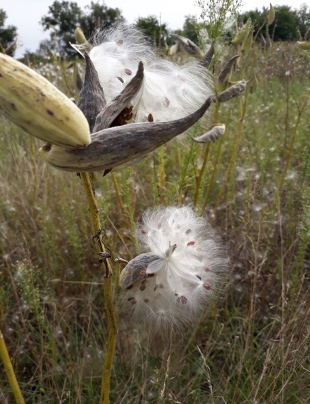Short-term effects of control of the invasive plant (Asclepias syriaca L.): secondary invasion of neophyte plants instead of regeneration of native species.
In this study, we investigated the effects of the common milkweed, a perennial, vegetatively well-spreading invasive plant species from North America, on the main soil properties and vegetation composition in a field experiment on abandoned sandy old-fields in Kiskunság. We also studied the effects of mechanical control (cutting) of milkweed on other native and non-native plant species. We found that common milkweed invasion alters the composition of the vegetation, but had no effect on the basic properties of the soil. Short-term cutting (three years) decreased the cover of common milkweed, but native plants did not regenerate, and secondary invasion by other non-native plants occurred. This suggests that more time or additional treatments are needed for the native plants to regenerate after the invasive species has been controlled.

Publication:
Berki, B., Botta‐Dukát, Z., Csákvári, E., Gyalus, A., Halassy, M., Mártonffy, A., Rédei, T. & Csecserits, A. Short-term effects of the control of the invasive plant Asclepias syriaca: secondary invasion of other neophytes instead of the recovery of native species, Applied Vegetation Science, e12707.



